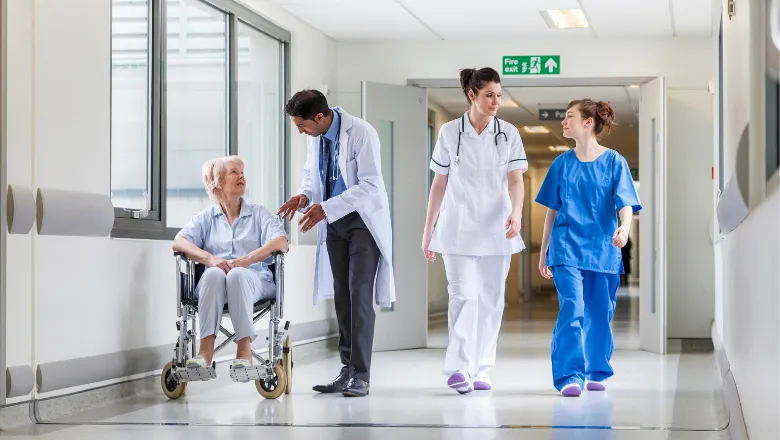From our analysis, we concluded that living closer to the epicentre of the alpha variant was associated with a high positive rate, as well as more tests taken increasing the likelihood of being positive. Therefore, we can conclude that attending the hospital does not increase the risk of transmission.
Professor Mieke Van Hemelrijck, School of Cancer & Pharmaceutical Sciences
17 January 2022
Hospital attendance not associated with increased risk of COVID transmission
These results follow from an analysis of asymptomatic, positive COVID-19 cases in cancer patients during the outbreak of the alpha variant, between December 2020 and February 2021.

The new study, led by Professor Mieke Van Hemelrijck of the School of Cancer & Pharmaceutical Sciences, analysed data from cancer patients who were attending Guy’s and St Thomas' NHS Foundation Trust.
A major driving force of the UK’s second wave of COVID-19 was the evolution and spread of the alpha variant, which was associated with a greater rate of transmissibility.
A common side effect of cancer and cancer treatments is the death of immune cells, reducing the patient’s ability to fight infections such as COVID-19. As a precautionary measure, treatments and follow-up care for cancer were interrupted or paused during the second wave.
To assess the risk of infection towards cancer patients, the authors analysed COVID-19 positivity rates during the second (alpha-variant driven) wave of COVID-19.
Data were collected from 1,346 patients who tested positive with asymptomatic COVID-19 cases and a logistic regression was conducted. This statistical model was used to analyse the factors associated with COVID-19.
The results, published in Future Oncology, showed that an increased number of tests taken by asymptomatic people and living less than 20km (12.4 miles) from the epicentre of the alpha variant (the area of southeast England associated with its initial outbreak) were associated with higher positive rates.
The latter is a particularly important factor as Guy’s Cancer Centre serves many patients who live in Kent and London, where the alpha variant first proliferated.
However, attending Guy’s and St Thomas’ NHS Foundation Trust was not associated with an increased chance in patients testing positive.
These results suggest that PPE and social distancing guidelines have so far effectively curtailed the risk of cancer patients contracting COVID-19. As a consequence, the authors support continuing cancer treatment and care for patients.
These findings will be important towards efforts to improve cancer care and treatment outcomes, as we begin to assess and manage the impact of COVID-19 related delays and disruptions.
Read the full paper here.

